Behind the Scenes with Cleo: Founders Tom Lancer and Westley Harnett’s Vision
In the wake of our recent article looking into Cleo’s transformative rebrand from The Workplace Partner, we delve deeper into the minds behind this innovative shift. Founders Tom Lancer and Westley Harnett share their journey, shedding light on the pivot towards a brand that champions wellness, authenticity, and a reimagined workplace culture.
This conversation unveils the inspirations driving Cleo’s evolution, their commitment to enhancing workplace wellness, and the forward-thinking strategies setting Cleo apart in the design and build industry.
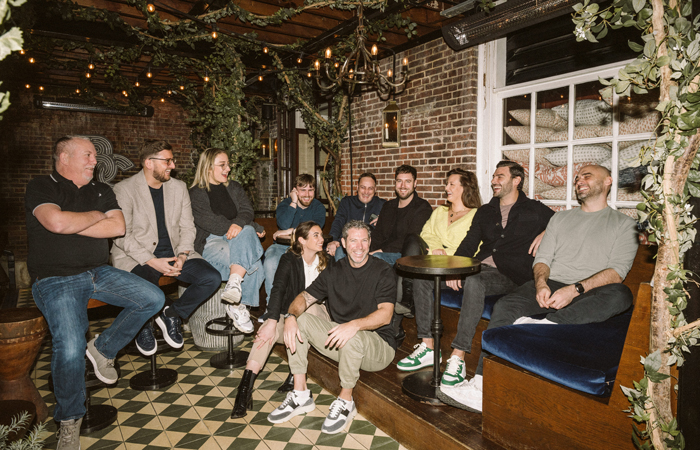
Introduction to Cleo and Its Founders: Could you start by introducing yourselves and telling us about the journey of transforming The Workplace Partner into Cleo? What inspired this significant change?
W: I’m Westley Harnett, one of the co-founders of Cleo. I’ve got 25 years’ experience in the industry. I’m super passionate about detail, optimism, positivity and I love growth, not just for me but for the people around me.
T: I’m Tom Lancer, I’m one of the co-founders of Cleo, I’ve been doing this for 12 years. I’m all about the people, the projects and quality design.
W: We started Cleo, or TWP as it was originally, as a response to some pretty negative experiences we’d had at previous companies. There seems to be this idea that you need to kill yourself working in order to succeed in this industry and we wanted to challenge that. We work on some truly outstanding projects, our team is growing all the time and by prioritising wellness, we’re happy, inspired and fulfilled.
T: We created TWP when the industry was in a very different place, there was so much uncertainty in the market that we felt we needed to offer a sense of stability to our clients, to be an expert ‘partner’ in their workplace evolution. Naturally over time we realised that what we need to offer it’s a sense of familiarity and shared understanding. The knowledge that your brand and your team are in good hands with us because we genuinely care.
W: It was the human element that was missing. Last year we just felt like our brand and name were no longer a reflection of the service we were providing or the team members here that were providing it. Cleo is so much more accurate to who we are. Warmth and wellness over suits and seriousness.
Within our own business we have strived to create an environment that fosters happiness, creativity, and wellness and this has enabled us to not only recruit and retain some truly outstanding people, but it also allows us to approach our work with complete authenticity.
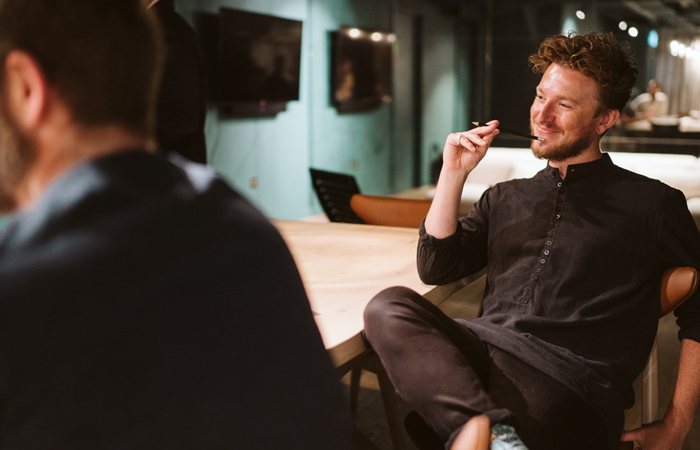
Insights on Rebranding and New Brand Identity: What were the key factors that led to the decision to rebrand to Cleo, and how does the new brand identity reflect your company values of Authenticity, Partnership, and Quality?
W: Tom and I felt that The Workplace Partner just was not cutting it anymore. We were a different beast, we had grown three, four times what we were. We also felt that the name was getting confusing. People were calling us all sorts of stuff WPT, TWS, The Workplace Partners, The Workplace Consultants. We decided we needed a new name, this coincided with the growth of the team, wanting them to have a say in how they were represented, and a slight shift in vision. Whilst we still want to be best in class, we want to provide something different and unique in the industry.
T: We worked with the agency Motive and they really allowed us to look inwardly and understand who we were and who we had become. The warm, vibrant, fun brand you see now is a truly authentic representation of us.
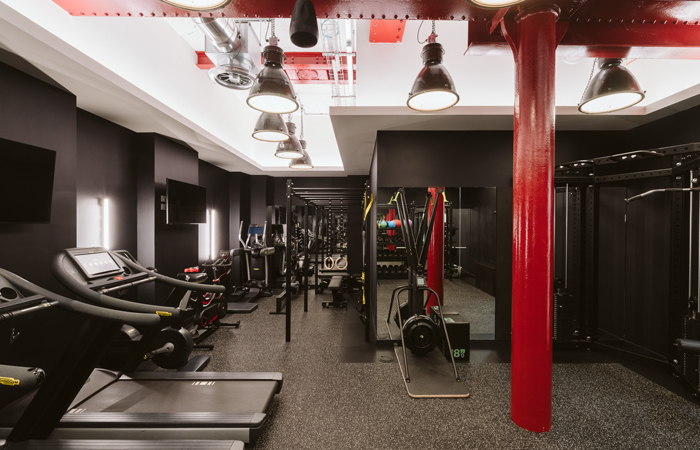
Importance of Wellness: Wellness has emerged as a central theme in Cleo’s philosophy. Can you share why it’s so important and how Cleo’s approach to wellness differentiates from others in the sector?
W: It’s what the company was founded on. Tom and I were both working at a company where employee wellness was far from a priority, and we’d just had enough. We set up Cleo, or TWP as it was then known, so we wouldn’t have to put up with a poor working culture, micromanagement, a lack of progression opportunities or just general unhappiness at work.
T: We’ve been able to create an environment that is super supportive, productive and fun. We’ve made it our mission to make sure that everyone that works at Cleo feels seen and heard, supported both professionally and mentally, and is able to grow. Funnily enough, a lot of the team have similar stories, they’ve been undervalued or mistreated in their previous workplaces and not allowed to reach their potential and then they found their way here.
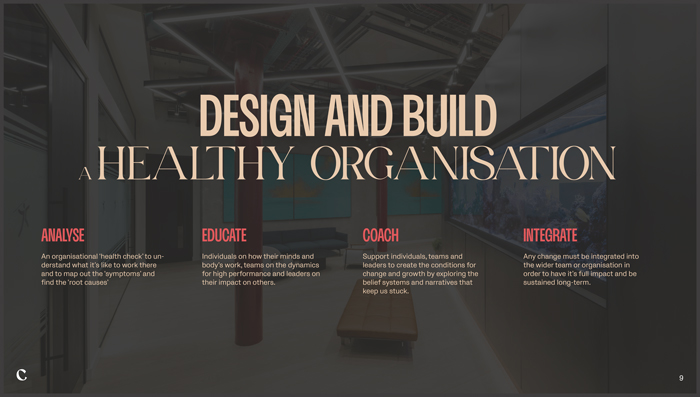
Role of the Wellness Consultant: Working with a wellness consultant is quite innovative. How will this relationship enhance Cleo’s service offerings and differentiate your firm from competitors?
T: Wellness is important to us and we’ve worked hard to promote it internally but on a larger scale we wanted to bring in an expert in the field. The team at Lead with Health has years of workplace experience and understand the group psychology of the workplace, and the impact the workspace has in it.
W: It’s not one size fits all, we know that wellness initiatives need to be holistic to be effective, working with Lead with Health allows us to design a bespoke solution that is well research and based on data and experience unique to each client.
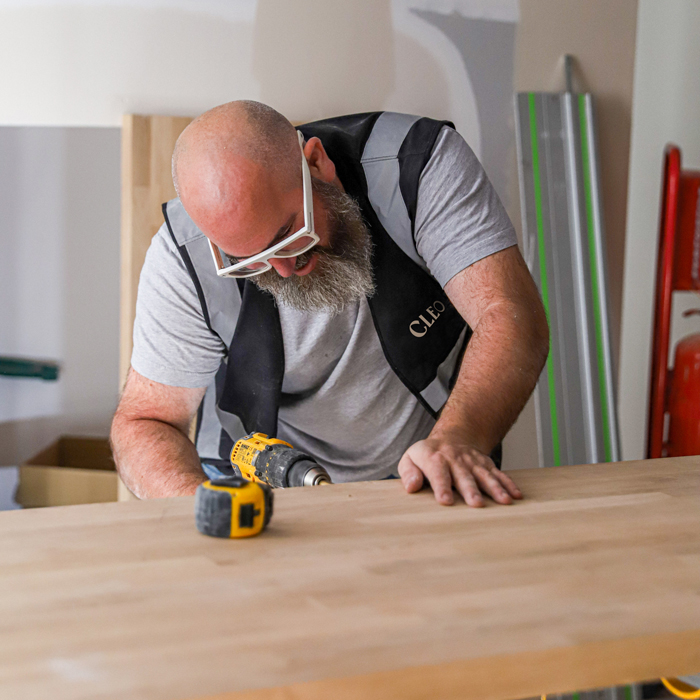
Distinct Approach to Design and Build: How does Cleo’s approach to design and build fit-outs distinguish itself from other firms in the industry, especially in adapting to new work dynamics?
T: We’re obviously not the only fit-out company out there talking about putting people first, I think we all know that in 2024 the office needs to offer its team more than just a desk and a monitor, the difference with us is that we practice what we preach. We make sure our house is in order, that our team are happy and fulfilled and excited by their work. This then impacts how we work with our clients. Moving or upgrading your office can be extremely disruptive and stressful, we are able to be fully present with our clients every step of the way.
W: Everyone here is at the top of their game. We hire top down, we pay higher wages for the most talented and experienced individuals because we want quality over cash. The impact of prioritising wellbeing and culture has been massive, everyone at Cleo wants the best for the company and for each other, we work f*cking hard because we all take pride in our work, and the proof is in the pudding. We’ve created some unbelievable spaces that you would not believe had been done by a boutique agency like ours. And we have so much fun, genuinely I feel so lucky to be surrounded by this group of people doing what we do.
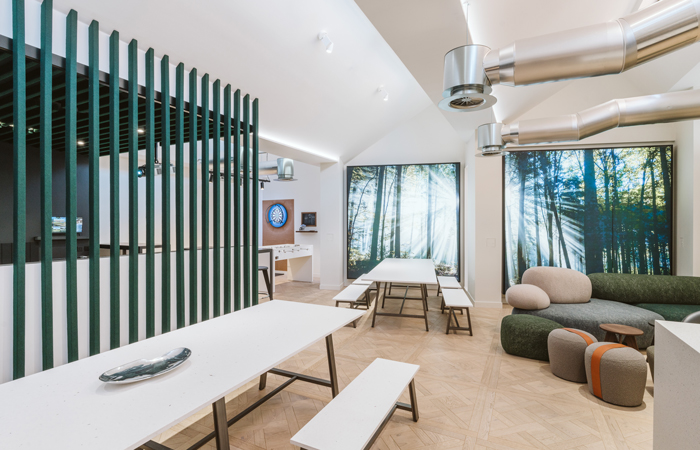
Vision for the Future of Workspace Design: As we look to the future, how do you envision the evolution of workspace design, particularly with the increasing preference for hybrid work models?
W: Hybrid working, as a blanket term for your whole team, is on the out. Holistic working is what we’ll start to see more of. Creative ways to provide bespoke working options to your individual team members will replace that one size fits all, 3 days in two days out office model we are currently seeing the majority of companies adopt.
T : Business owners are risk averse, they aren’t going to pay the huge fees associated with a 20,000 sqft space if only 20% of their team are in at any one time. They want people back in (even if they don’t say it) but they can’t enforce a five-day week without the risk of losing team members who have built their lives around the flexibility they’ve been offered since covid.
W: As workspace designers, we are uniquely placed to show these business owners how the office can be used to entice a workforce back into the office by creating a physical environment that can support, inspire, challenge, facilitate and connect.
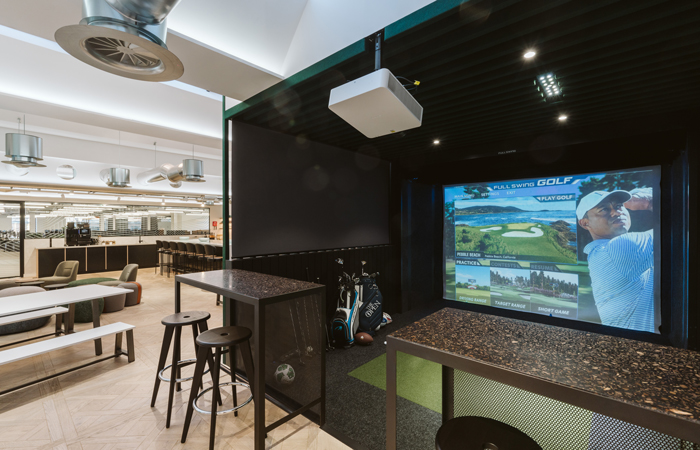
Innovations in Workplace Design: Can you discuss any innovative design solutions or technologies that Cleo is exploring to meet the future needs of the workplace?
T: Inclusivity is being prioritised by business owners in 2024, we can advise on how to make your space more accessible to your whole team, mothers’ rooms and prayer rooms, accessibility solutions, responsive temperature and light control, white noise pods, ergonomic or flexible furniture, there are so many ways to create a space that can support any individual regardless of gender, race, ability or age.
W: VR and Matterport photography, these have been around a while but really boomed in 2020, expect to see these more and more.
T: Immersive experiences as well, the drop in alcohol consumption for the younger generations will mean that a company will need to come up with more creative ways to keep their team socially engaged than shelling out for beers on a Thursday.
W: Sustainability is no longer going to be seen as an optional extra, it’s going to need to be a part of your workspace from its conception. We work with a series of environmentally focussed product suppliers and consultants to make sure we’re always at the cutting edge of sustainable design.

Predictions for Workplace Evolution: Based on your insights and experience, what are your predictions for the workplace’s evolution over the next decade, and how is Cleo preparing to meet those changes?
W: We might sound like a broken record here, but wellness. People understand the value of self-care in 2024, they are starting to expect it from their employers (as they should) and employers need to be ready. If you want to attract the best talent, you need to consider what value your space can add to their lives. Meditation rooms, gyms, cycle facilities, biophilia, natural light, all things to consider when crafting your workspace.
T: A particular shift we are starting to notice and predict will continue is around drinking. Less and less clients are opting for the traditional office bar, leaning instead towards things like yoga studios, gyms, meditation rooms. Even the entertainment options are remarkably more and more alcohol free, with requests such as a no-booze members clubs, gaming and immersive experience simulators and wellness facilities.
W: In our own industry, famous for its culture of drinking to excess every Thursday and Friday, we are noticing a shift. Here at Cleo alcohol is not an inherent part of our celebrations. If we drink, we drink with intention. Because we want to, not because of habit or expectations.
T: Gen x and z are drinking way less than previous generations. These are the next generation of workers; I doubt we will return to the drink focussed culture of the last few years any time soon. Business owners will need to get creative thinking of ways to encourage social interaction and collaboration among their team that go beyond alcohol, staring with their workspace.




